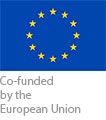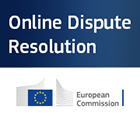Mobile calls and surfing in Europe
Nowadays mobile phones, smart phones or tablets are part of your travel kit and surfing, texting and mobile calls whilst abroad are run of the mill.
But remember that this isn’t managed by your trusted operator, but via a company in the country you are visiting. Mobile calls and surfing abroad is also referred to as roaming and can be costly.
European rules eliminated roaming tariffs in 2017 so that mobile calls, texts and surfing the net in another European country* costs the same as in Belgium. Initially these rules only applied until 30 June 2022 but they have now been extended: until 30 June 2032 roaming will be charged at your home tariff throughout Europe*.
However, before travelling abroad, remember to check your operator’s specific stipulations. Some providers have managed to evade the lifting of roaming charges. Others apply a ‘policy of reasonable use’. ECC Belgium explains.
- No more roaming charges in Europe. What does this really mean?
- Can you now use your mobile elsewhere in Europe just like in Belgium?
- Your provider’s information duty
- Can you enter into a contract with a provider abroad?
- Be vigilant!
- A complaint? What happens now?
Are you travelling outside Europe? Contact your operator to find out which roaming tariffs apply to your country of destination.
Roaming throughout Europa at your home tariff
On 15 June 2017 you stopped paying roaming charges within Europe. Mobile calls, texts and roaming now costs the same in 27 EU countries*, Norway, Iceland and Liechtenstein as in Belgium.
In the United Kingdom your home tariff no longer applies following Brexit. However, some operators decided to stick with this principle. It is advisable to check before you leave which tariff your telecom operator applies.
The quality and speed of a mobile connection should be the same abroad as at home, providing this is feasible with the network in the country you are visiting. For example, if your mobile works with 4G in Belgium, it should be the same in other European countries.
But remember, sometimes you might be roaming without being aware of it and will consequently receive an invoice for roaming costs. Discover when.
Good to know: If you are making a mobile call from Belgium to one of these countries you will be charged an international tariff. Your operator can provide further information on this.
There are exceptions
Your contract or prepaid card defines your call credit, number of texts and roaming volume. This also applies abroad, unless your provider decides otherwise.
Note: providers may apply a ‘policy of reasonable use’. Procedures vary from one operator to another. However, they must all inform you accordingly as soon as you cross the border of a specific country*.
Have you exceeded the credits included in your contract or gone beyond ‘reasonable use’? If that is the case your operator is entitled to charge a supplement. How much? Contact your provider to find out.
For example: if you have a subscription with unlimited calls, texts and internet access, unlimited calls and texts will also apply anywhere in the EU. Your data use, however, is not always unlimited.
Your provider’s information duty
As soon as you cross a European border your telecom operator should provide you with the following information:
- the roaming tariffs that apply to you including VAT
- details of their ‘reasonable use’ policy
- the European emergency number 112 with an indication that calls and texts to the emergency services are free of charge. Notifying the emergency service centre of your location via your mobile is also free of charge.
From 1 July 2023 this information:
- must include a link to a website that is easily accessible for disabled people and that provides information on alternative ways of contacting the emergency services.
- must indicate any supplements you will be charged when calling ‘added value services’ such as premium rate numbers (e.g. some customer service lines) and free phone numbers (e.g. 0800 numbers). These services may be free or cheaper when calling from home, but you may be charged extra when roaming.
Would you prefer not to receive these messages? If so, you can disable them via your settings.
In order to prevent unexpectedly high bills, telecom operators are obliged to notify you about the cost when you connect to a non-European network or satellite. Refusing such a connection (opt-out) should also be easy and free of charge.
In any case, your telecom provider must send you a message when your supplementary charges reach 50 euro, or less than that if you have set a different amount.
Entering into a contract with a provider abroad
In principle you can only sign up with an operator abroad if you regularly spend time in the country in question. Minimum two months in a four month period. Are you using your subscription more outside than inside the country in which you entered into a mobile contract during this period? In that case you risk being charged extra by the operator, subject to the maximum tariffs. This does not apply to people who have a valid reason for doing so (Erasmus students, people spending a lot of time abroad for business reasons …)
Be vigilant!
Sometimes you might start roaming without being aware of it due to your device connecting to a non-European cell phone tower, because your mobile device will always connect to the cell tower with the strongest signal. Following are a few typical examples.
- If you are close to an external border of the EU, the tower with the strongest signal may be located outside EU territory. In which case you will be making calls, texting and accessing the internet via the network of a non-EU provider and will be charged the roaming tariff that your operator applies for that particular country.
For example, are you in Italy or Austria close to the Swiss border? If so, there is a possibility that your holiday snaps are sent via a Swiss provider and you will be charged accordingly.
- Not all countries in Europe are part of the EU. Mobile calls from these countries** are still subject to roaming charges.
- If you are sailing between various EU countries you also risk having to pay more for mobile use. As soon as a vessel is outside the reach of onshore cell towers your mobile device will connect to a satellite and satellite connections are expensive. Contact your provider for information on relevant tariffs.
- If you use your mobile on-board a plane you will connect to a satellite and risk incurring considerable charges.
You can prevent this from happening by switching off the roaming option in the settings of your device.
A complaint? What happens now?
Your provider has overcharged you? Send a written complaint. You will usually find a complaint form on their website.
Have you received a negative reply? Contact the Telecommunications Ombudsman who will provide free support to resolve your complaint amicably.
Further questions on roaming? Visit the Your Europe or Belgian BIPT website.
Do you own a second property abroad? And are you now a direct customer of a local provider? Then you will probably want to know whether you can pay your invoice via your Belgian bank account. ECC Belgium provides further information here.
* 27 EU countries: Austria, Belgium, Bulgaria, Croatia, Cyprus, the Czech Republic, Denmark, Estonia, Finland, France (including French Guyana, Martinique, Guadeloupe, Mayotte and La Réunion), Germany, Greece, Hungary, Ireland, Italy, Latvia, Lithuania, Luxembourg, Malta, the Netherlands, Poland, Portugal (including the Azores and Madeira), Romania, Slovakia, Slovenia, Spain (including the Canary Islands) and Sweden.

